What should technical professionals know and what should they learn when seeking a career in sustainable development? The team behind the Engineering for Change Fellowship put the question to technical professionals working in sustainable development worldwide, and to those of our fellows who are early career professionals.
We asked them to identify the gaps in skills that early career technical professionals bring to their work. Their answers ranged from the specific, such as expertise in GIS tools, to the general. Communication obstacles, for example, were a refrain.
That’s where E4C’s Fellowship and similar workforce-development programs step in. Our fact-gathering session convened E4C Fellows and representatives of organizations partnering with E4C on impact-driven research and design projects as part of the 2024 E4C Fellowship. They include professionals at startups, multinationals, non-profits, governmental agencies and universities around the world, such as the Autodesk Foundation, the Association of German Engineers (VDI), the Electric Power Research Institute (EPRI), the UN Refugee Agency (UNHCR), our umbrella organization the American Society of Mechanical Engineers (ASME) and many more.
Following are some of the gaps and obstacles they identified.
First, a note about the term “sustainable development.” We use it broadly referring to conscientious, just and lasting global development as well as climate-conscious sustainability and environmental conservation initiatives. At least until we learn a better term to capture all of that.
Knowledge gaps
Our partners and fellows responded using colored post-its on a Miro board. The colors correspond to the respondents’ areas of expertise, with the exception of black, which are ‘synthesis stickies’ that label the theme. Check the captions for the color key.
The education system is out of date
Sustainability education in technical degree programs is somewhat anemic, research suggests. A study of mechanical engineering courses worldwide found that sustainability was mentioned in a required course at fewer than half of the 100 programs examined.
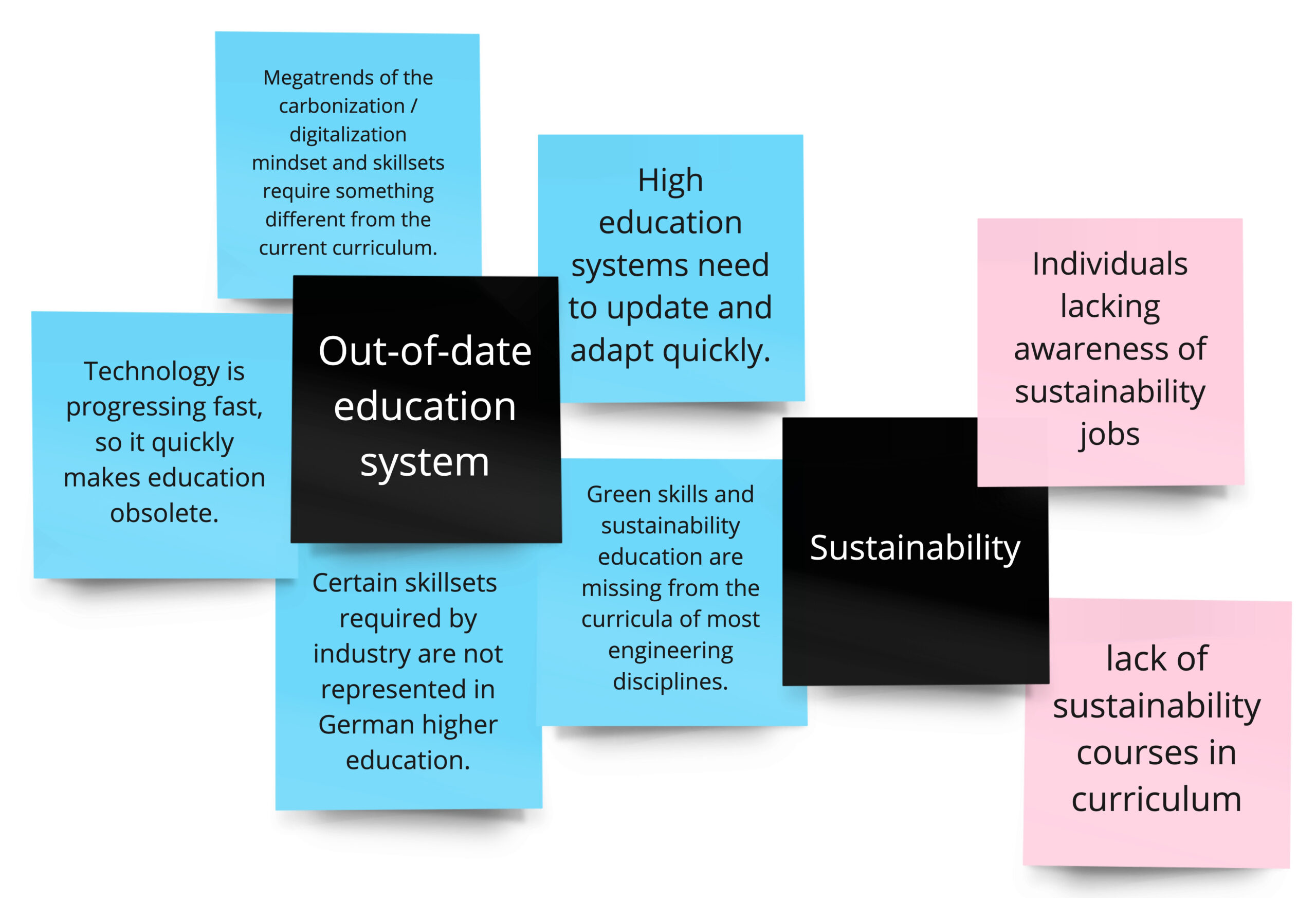
Color key: Black – synthesis stickies, Blue – Water, Pink – Education.
While the study reveals targets for improvement, our fellows and expert partners tend to agree that up-to-date sustainability knowledge and skills training are lacking in education. They pointed to flaws that begin at the academic level, with curricula misaligned to industry needs and failing to keep up with rapid changes.
“Green skills and sustainability education are missing from or out of date in the curricula of most engineering disciplines.”
Recruitment challenges
The process of recruitment can present obstacles to employers, compounded by uncertainties related to remote work.
Recruiters also have decisions to make that branch away from technical skill. These range from diversity to attitudes to the personality traits that make for effective remote work.
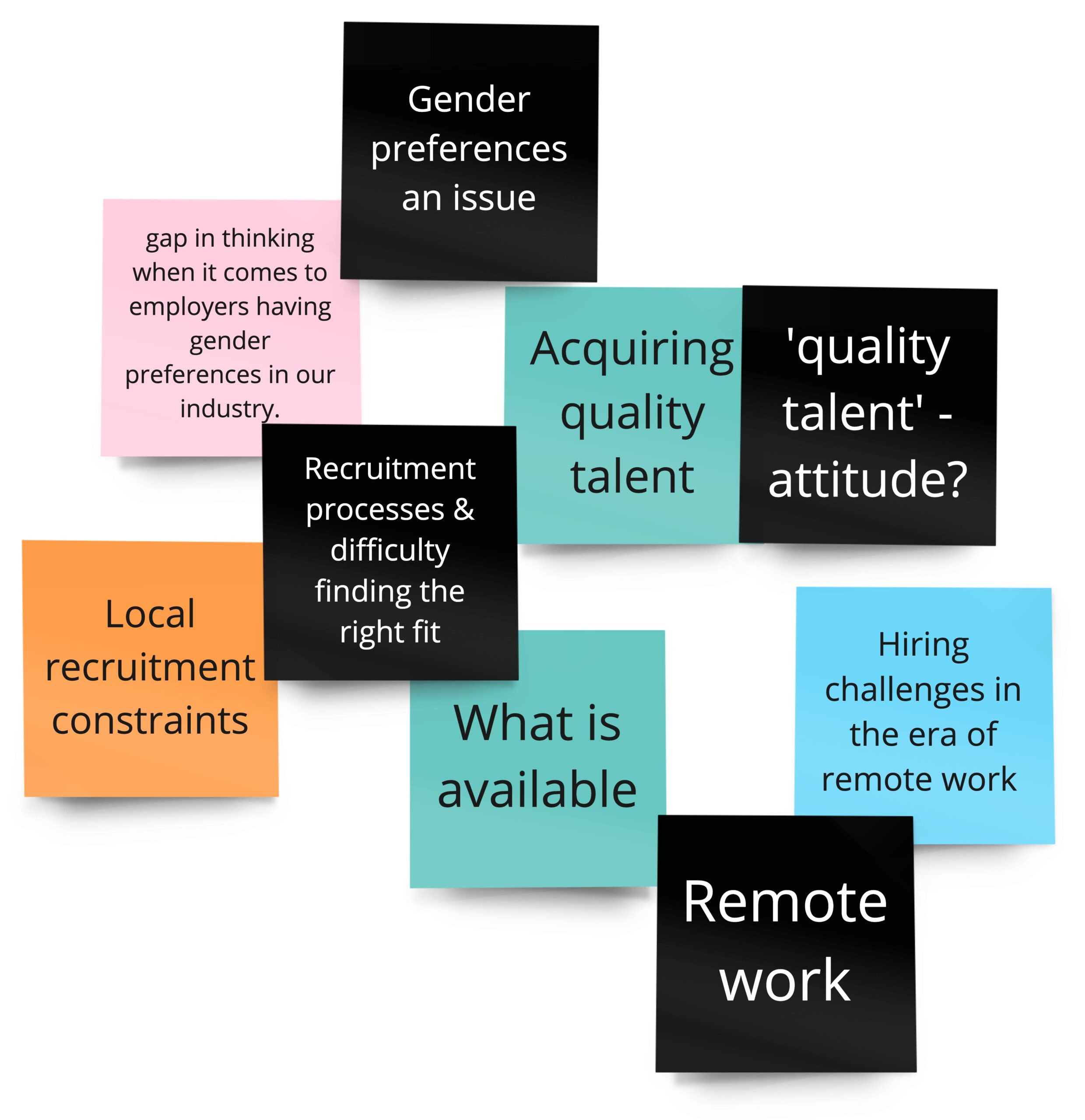
Color key: Black – synthesis stickies, Green – Agriculture, Blue – Water, Pink – Education, Orange – Habitat (housing, architecture, etc).
“Hiring challenges in the era of remote work”
Let’s talk about it
Communication skills cropped up in different guises during the conversation. Employers are looking for technical professionals who can understand and communicate with others outside their discipline and field.
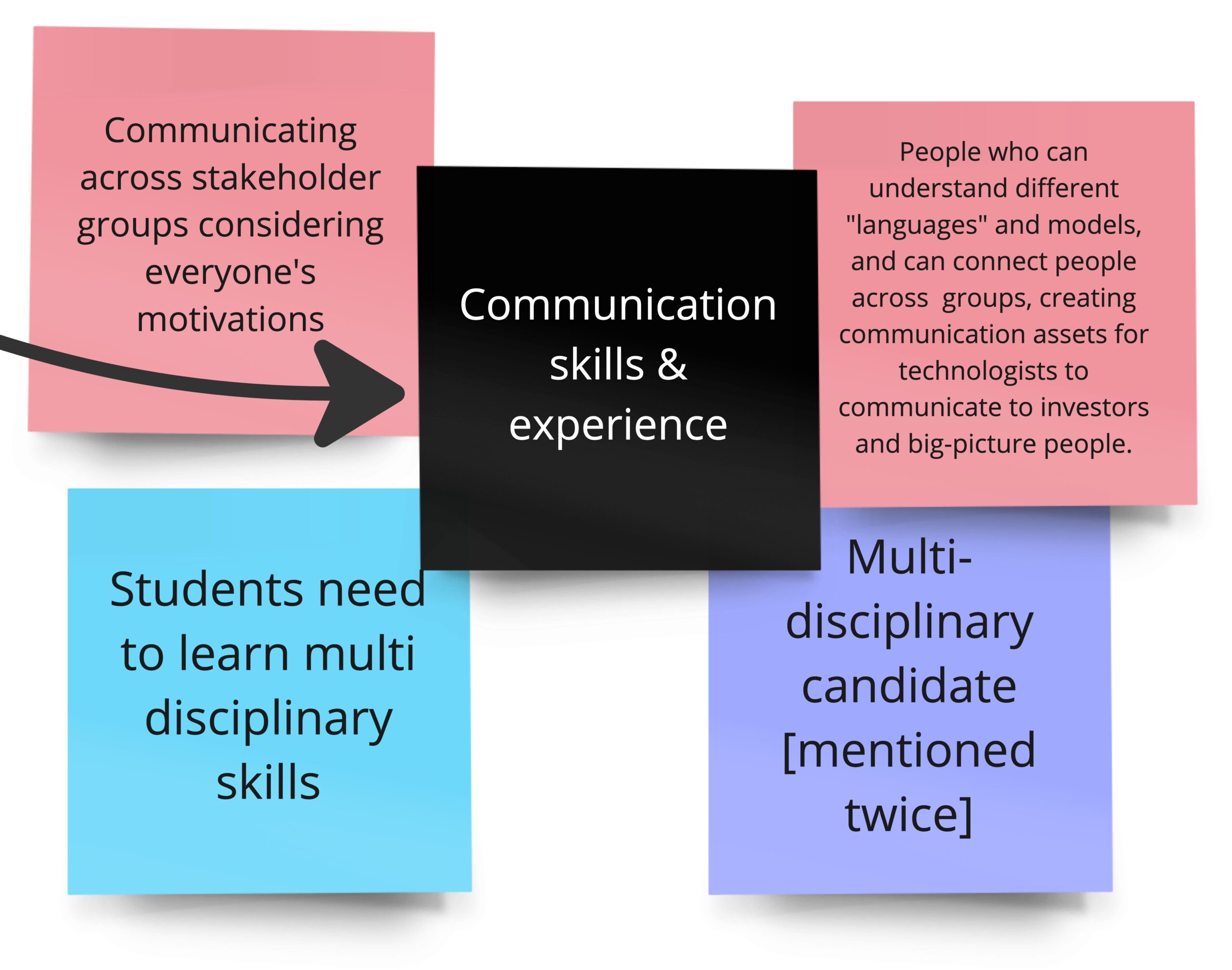
Color Key: Black – synthesis stickies, Blue – Water, Pink – Education, Purple – Energy.
“Communicating across stakeholder groups is a priority”
Job-specific skill gaps
This category probably appears on lists in every industry, and we’ve added it just to highlight examples of the skills that engineers working in sustainable development-focused jobs might require. Note that communication appears here, too.
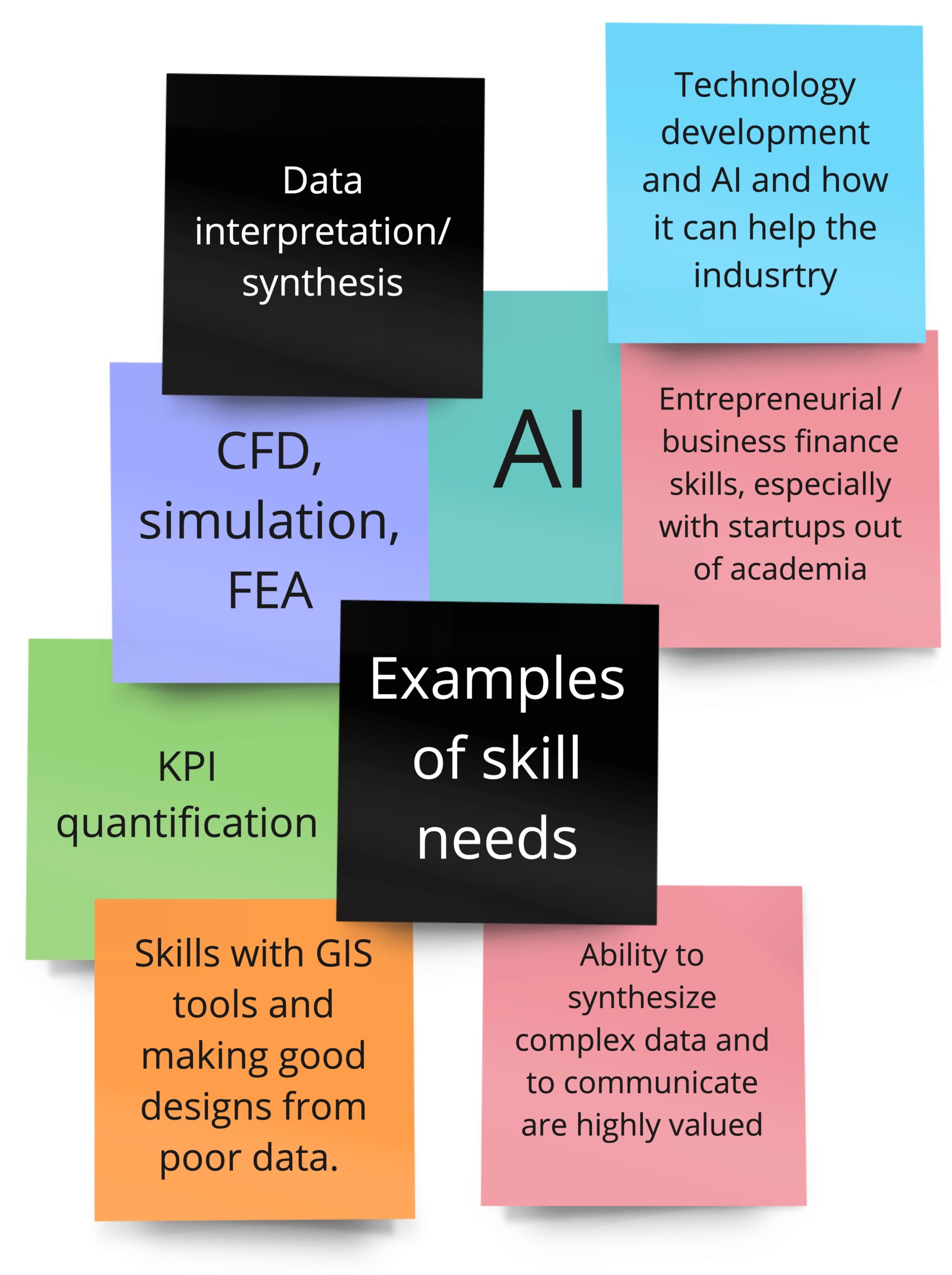
Color Key: Black – synthesis stickies, Green – Agriculture, Turquoise – Climate Action, Blue – Water, Red – Entrepreneurship, Purple – Energy, Orange – Habitat.
“Entrepreneurial / business finance skills, especially with startups out of academia”
Perspective, context and big-picture gaps
Our experts say they need people who can extrapolate from instances, or break apart a big problem into manageable pieces. They want to move from the anecdotal to the overarching narrative and back again; zooming in and zooming out. And they’re seeking people who can work internationally with cultural and social awareness.
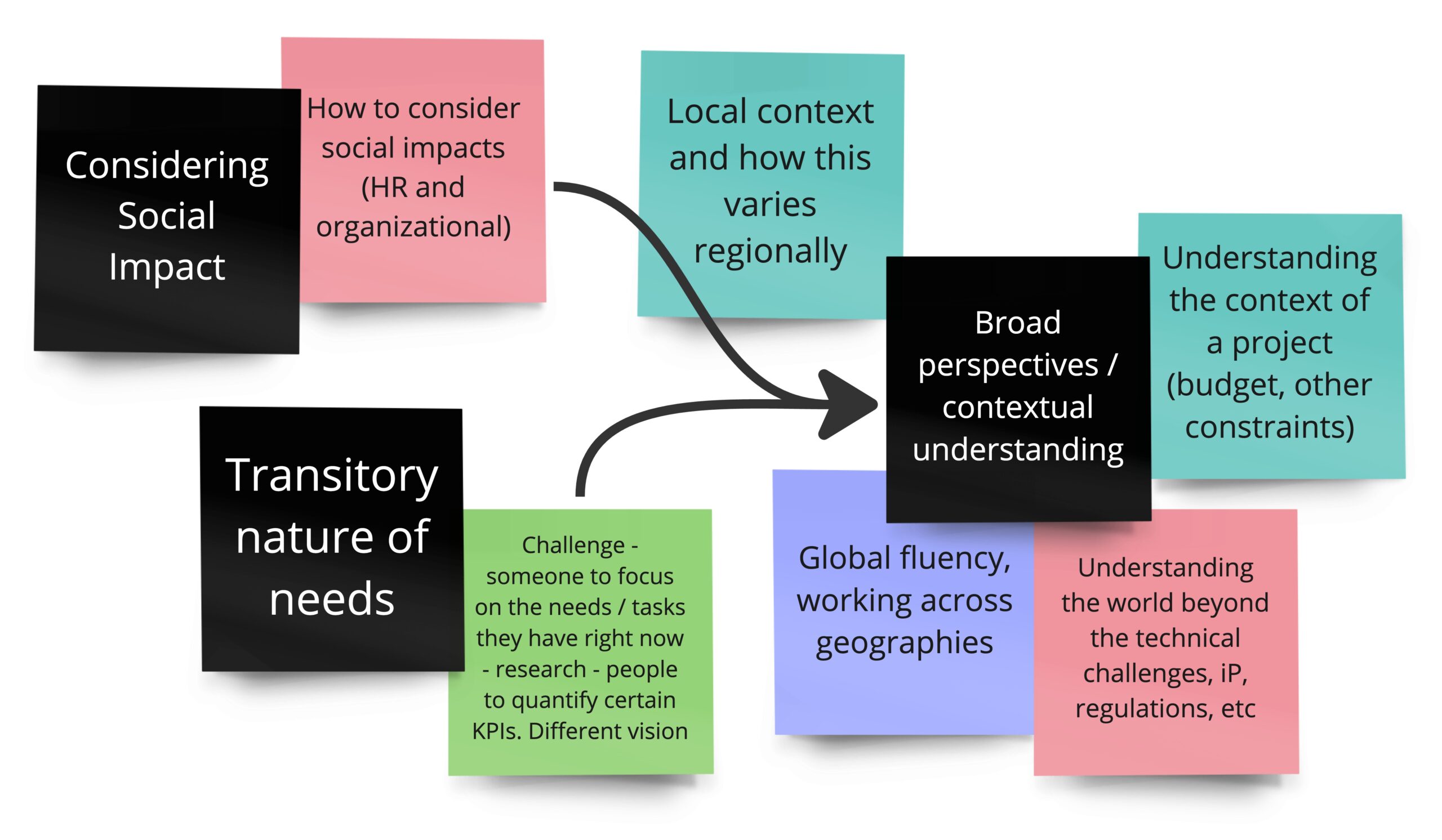
Color key: Black – synthesis stickies, Green – Agriculture, Turquoise – Climate Action, Red – Entrepreneurship, Purple – Energy.
“Understanding the world beyond the technical challenges”
Adaptability matters
The work environment is quickly changing, and experts say they need people who can adapt. This may include flexibility to changes in a project and its priorities, or to fill roles within a lean organization.
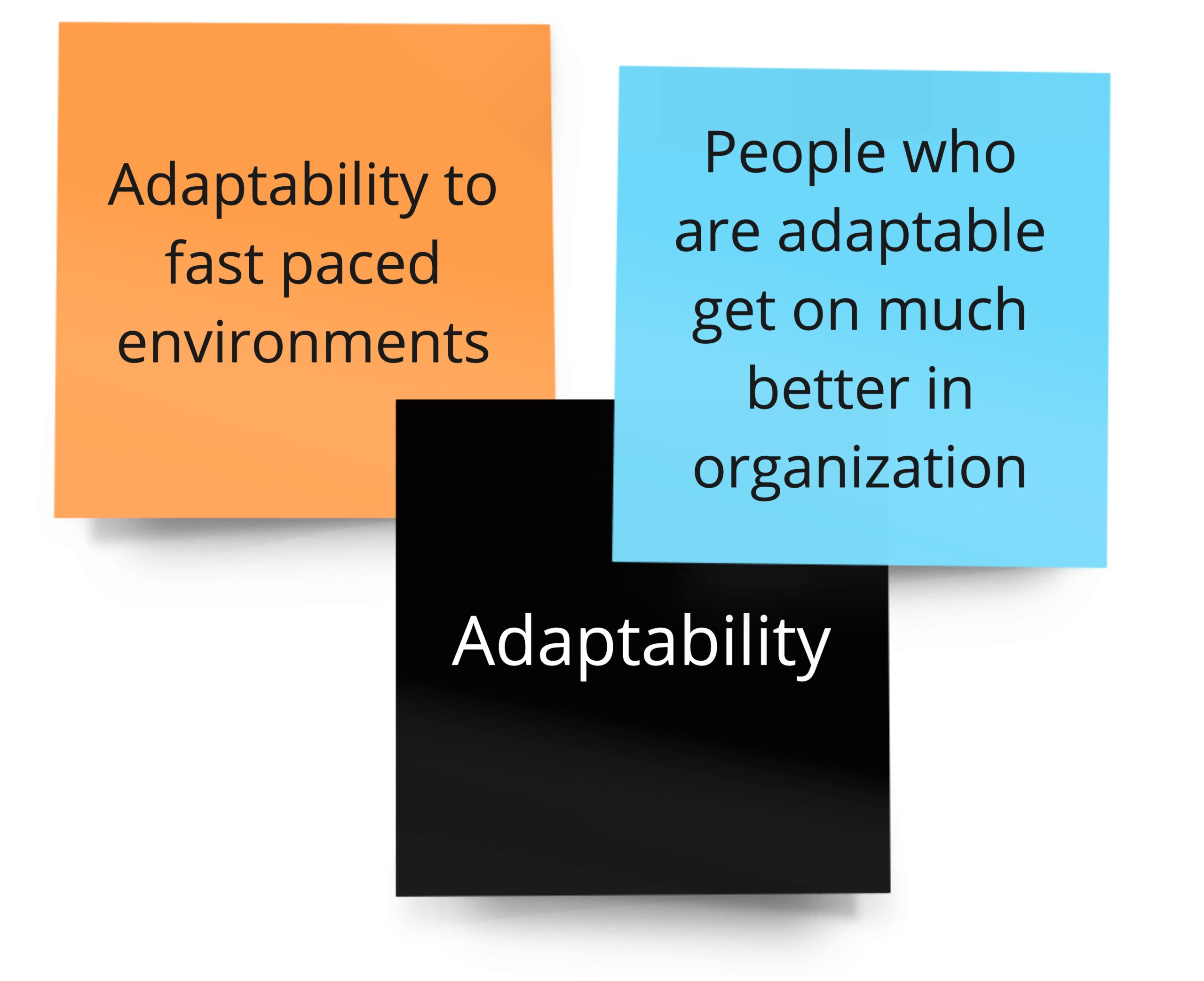
Color Key: Black – synthesis stickies, Blue – Water room, Orange – Habitat.
“Adaptability to fast-paced environments”
Are these roadblocks, or opportunities?
Navigating the gaps does indeed reveal opportunities for new educational experiences, mindsets and hiring priorities. Our partners and fellows each have unique perspectives on the issue, some of which we’ve captured below.
Experts: Outsource the missing skills
When a company can’t hire or train up people with the sustainability-focused technical skills they need, they can build targeted programs for talent development, or outsource the work. This is where Engineering for Change’s Fellowship and their Impact Projects shine.
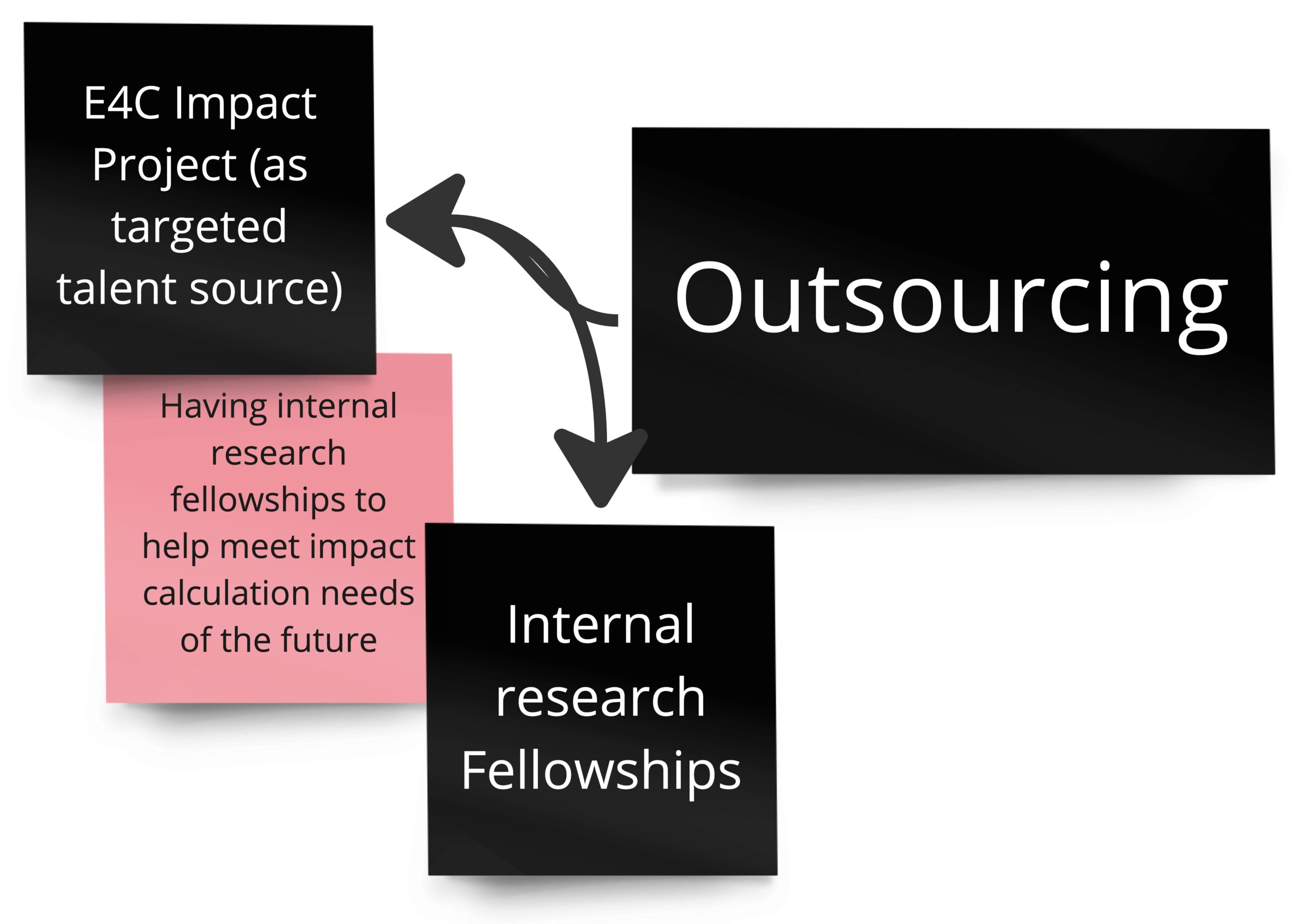
Color Key: Black – synthesis stickies, Red – Entrepreneurship.
“Having internal research fellowships to help meet impact calculations of needs”
Fellows: Do it yourself
The DIY spirit pervades the solutions E4C’s Fellows have devised to close the education gap.
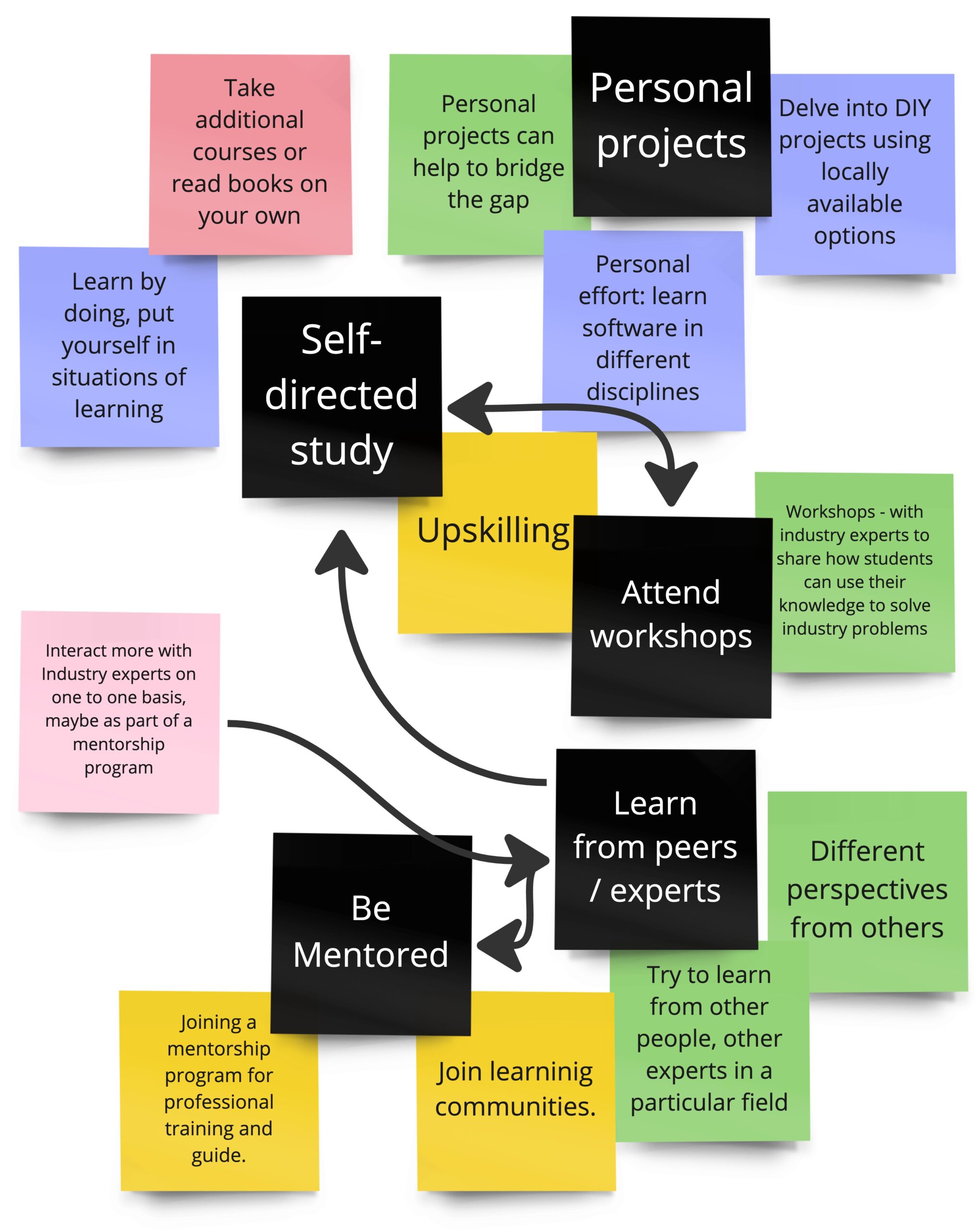
Color Key: Black – synthesis stickies, Green – Agriculture room, Pink – Education, Purple – Energy, Red – Entrepreneurship, Yellow – ICT.
“Join a mentorship program for professional training”
Fellows: Train up conventionally
The fellows also mentioned leaning into practical, conventional means of gaining skills for a career focused on sustainability.
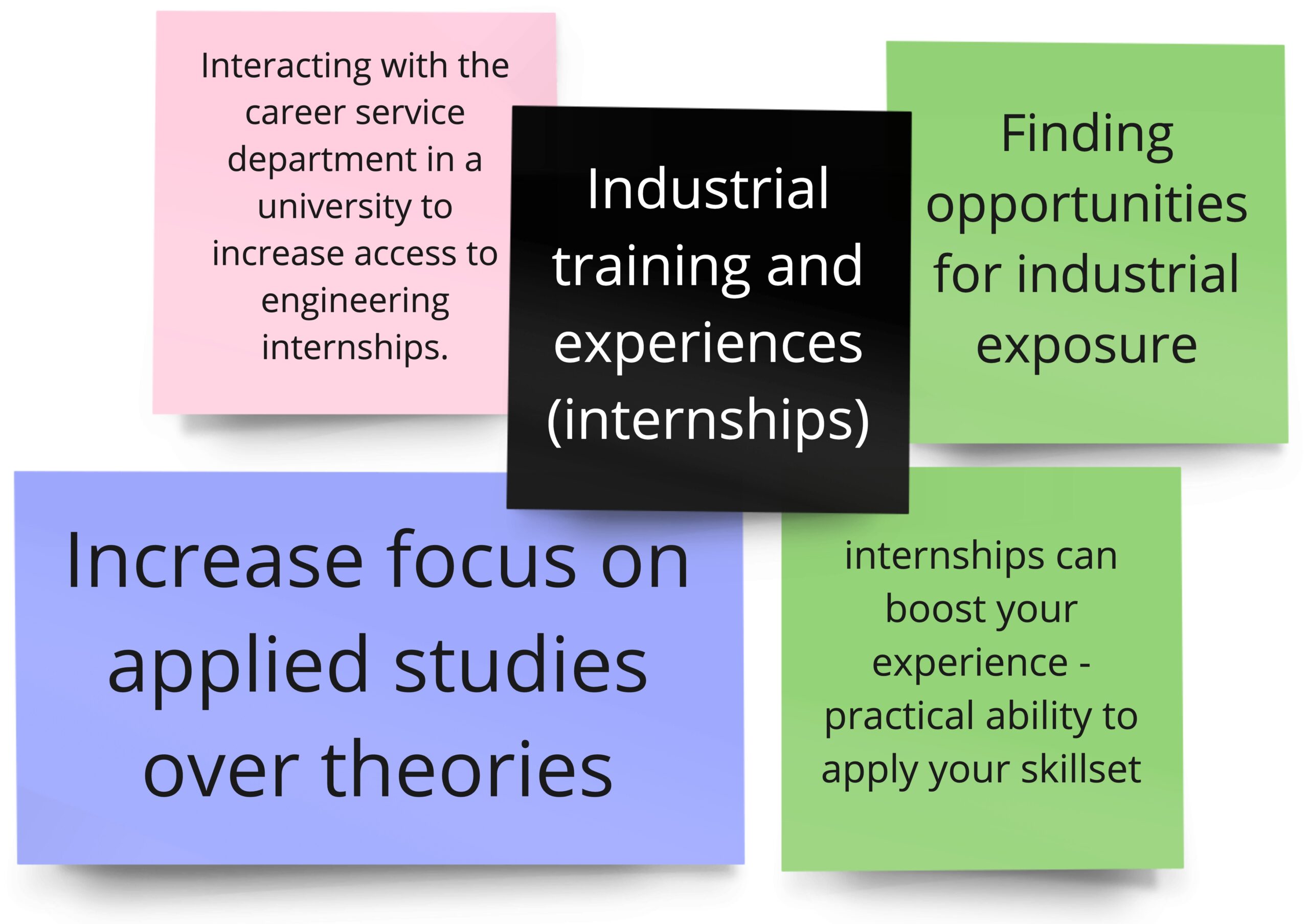
Color Key: Black – synthesis stickies, Green – Agriculture, Pink – Education, Purple – Energy.
“Internships can boost your experience”
Experts: Prioritize the skills that matter
Job-specific technical skills and a flexible nature, empathy, cultural awareness and big-picture thinking rarely converge in the same job candidate, so employers should choose their priorities instead, our experts say.
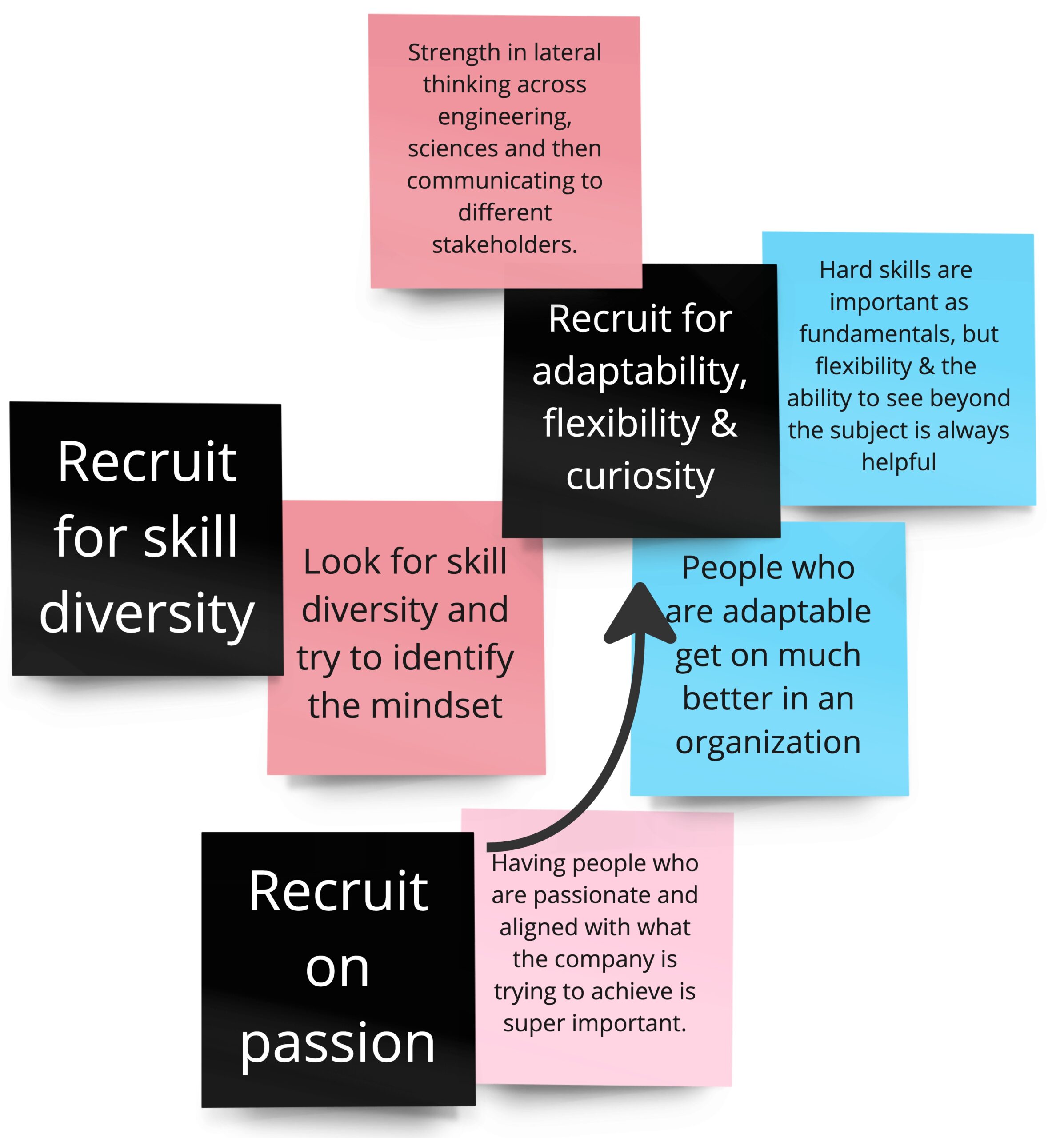
Color Key: Black – synthesis stickies, Blue – Water, Pink – Education, Red – Entrepreneurship.
“Having people who are passionate and aligned with what the company is trying to achieve is super important”
The gaps overlap
When we asked about knowledge gaps, one of the big reveals in the analysis was they tend to be similar across industries and disciplines. Many of the respondents have the same concerns. That means fellows and organizations that focused on climate action had similar concerns to those focused on water access, education, ICT, habitat, agriculture and other fields.
Likewise, the solutions tend to overlap. Train up, recruit for skill diversity and adaptability, or outsource sustainability-focused initiatives.
One advantage to outsourcing to E4C is the diversity of our team. We recruit and educate technically trained early career professionals who work in a broad array of sustainability-focused fields. And they live in dozens of countries around the world, many of which are on-site in the regions where innovation, research and services are most needed.

